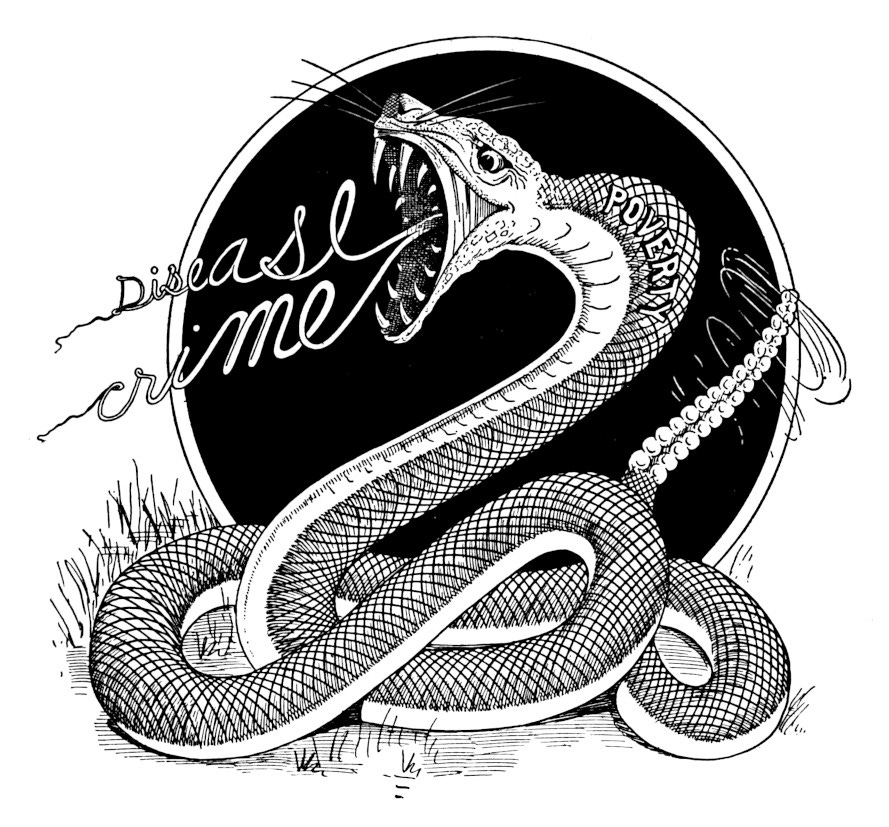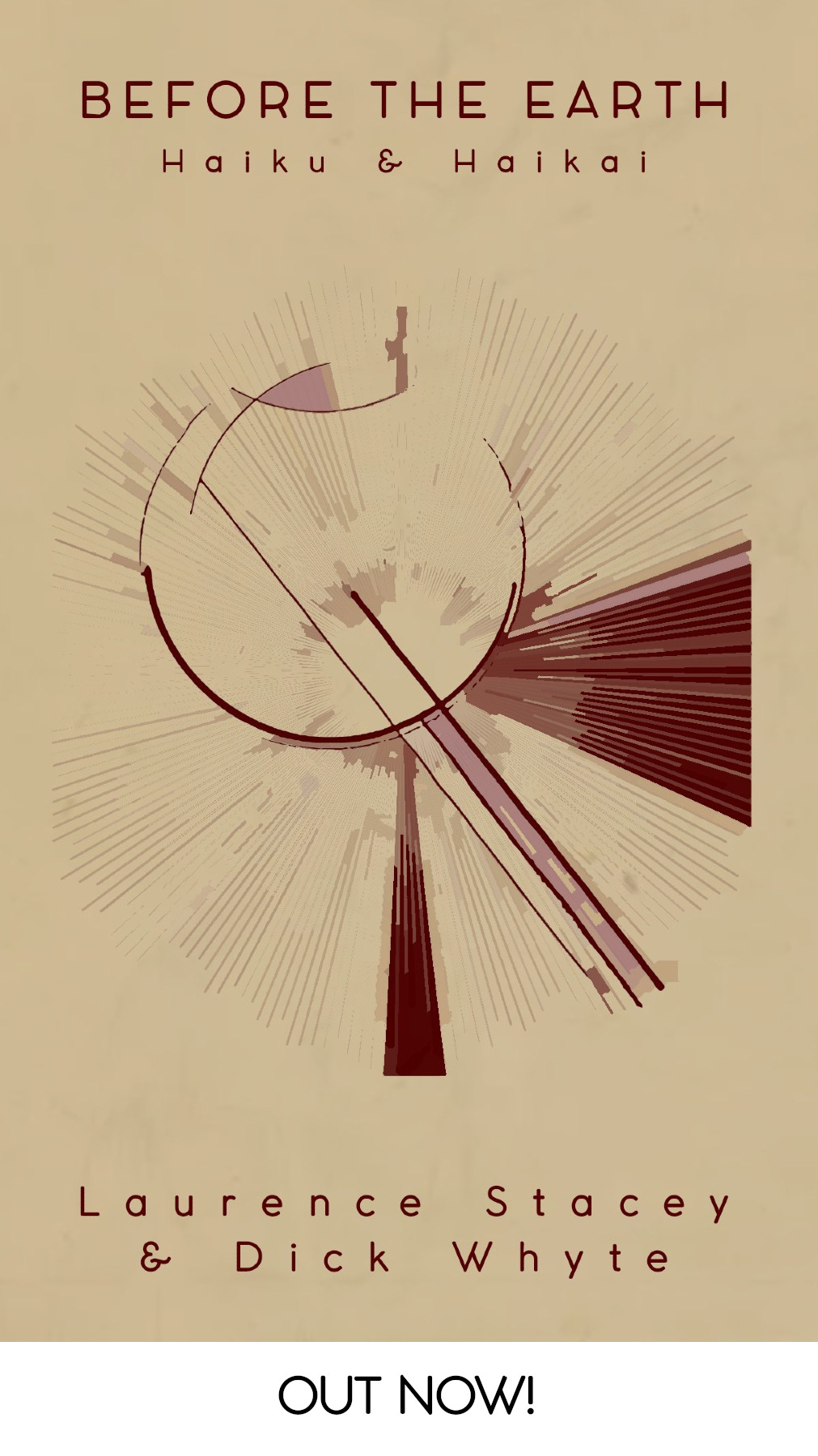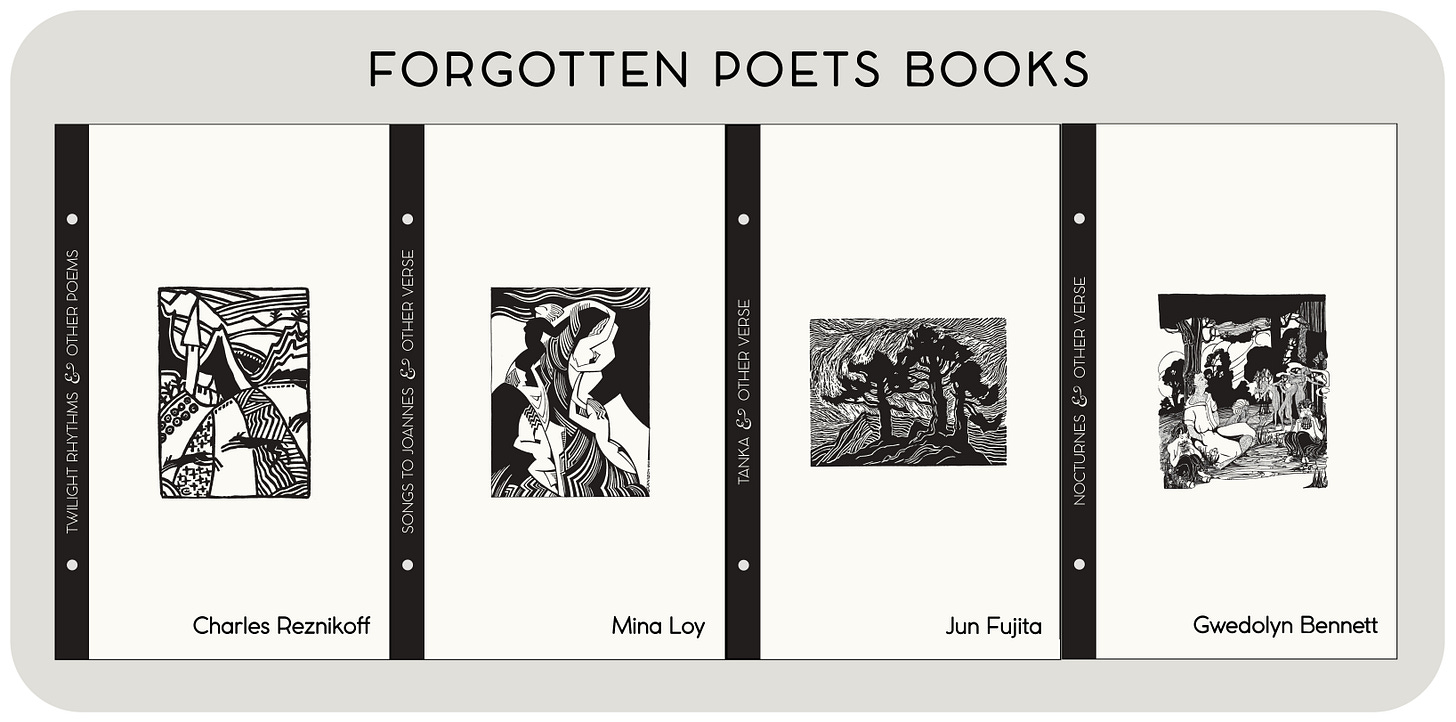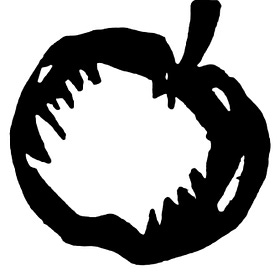—: Waitress :—
It's funny—
I can't seem to remember anything
Except 50-cent checks and customers
Who give a smile
On the silver plattie of their belly-full good nature.
I can't seem to remember anything
Except omelettes and torrents of sweat and dish washers—
They keep sprawling all over the place
Greasing my thoughts,
Clogging them with ugliness.
God! I'm tired.
My feet have a spinster's grudge
Against the laughing gold of my young hair.
God! I wish I could remember
Where I once saw a nest of honey-sweet eggs
In a tree where a strong wind blew.
—: Growth :— I used to think pretty thoughts All dolled up in crinoline and lace The color of my little-girl dresses Matched my pink and lavender thoughts As they strolled along nice roads Where the wind was polite And the sun never said heated things to one . . . . . . But now . . . I am a factory worker Listening for silence amidst the dark roar Of a hundred machines Thrusting black-beast shapes before the sun. Sometimes my respectable memories Go into convulsions of horror at my thoughts. My respectable memories go running Down the street of the past To hide in yards of crinoline and lace . . . Because my thoughts are smoky and grimy, They are garbed in red and black; They speak blasphemy and feel a strange, fine hate.
—: Restaurant :— The rats scurry over the dishes. The cockroaches play tag in the bread jar. Nice designs of grime embroider the greasy soup. And inside the liquid. Scraps of meat and potatoes float questioningly: “Why did that chemist commit suicide?” The boss says to the cook, “Step lively, there Keep a little cleaner, keep a little cleaner.” The cook says to the waitress, “You sleepyhead— Where'dja go last night—where'dja go last night?” The waitress says to the dishwasher, “G'wan, you black gal, Move a little faster, move a little faster.” Rat traps. Traps of enmity. And the lock is Big Change. And Big Change is where The clouds drift to a summer day.
—: Boss :— He is a decaying pumpkin in a rosy field. Of redwood is the elegant office, And round and yellow his senile head, Prim and straight I sit taking dictation. My hair lies in dark, peaceful folds, My fingernails cut in pink foreignness to grime. “Yes, sir.” “No, sir.” inhabit my speech. But yet I am one of the masses A black vicious beetle Which will someday inject The black cancer of class war Into the rosy field of the office To suck and destroy the essence of decrepit pumpkins.
—: In Dedham Courthouse :— (Where Nicola Sacco was convicted) I cannot shut my eyes Without the vision of the convict's wife Coming to me. Her wailing that beat against The stone wall of the courthouse Until her voice bled. The terror in her eyes, Crushing the brown flowers sleeping within . . . And the passion-strength of her arms As she tore into the bars of the cage Which imprisoned her loved Nick . . . And he with sad comforting hands Smooths her tangled red hair After he had cried out From the despair of his soul, “I am innocent!”
—: Family :— My sister Mathilde is wed to a Norwegian carpenter; Their babies are scoops of red fat lost in cream. My brother met a young Jewish girl— She drinks disillusionment like a good soldier. Cousin Helen divorced an Irish Catholic who beat her— Their brown-eyed boy justifies all murder and poetry. My Swedish grandmother danced too lond With a Russian pedlar passing through the Dalarne forests— Today her youngest girl dances in alleys of calumny's whispers. They are good people . . . That is why they locked me out. Cast me out of home and refuge . . . I love a Negro poet.
Laura Tanne (p. 1925-1930s) was considered one of the “Wobbly poets” (Industrial Workers of the World, or IWW). Much of the “Wobbly” poetry “remains scattered in the union's many periodicals and the International Socialist Review, awaiting rediscovery. The sheer number of Wobbly poets is staggering. No one has attempted a full count, but it is a safe bet that the IWW has had more poets than most unions have members. Even more impressive, however, is the diversity and quality of the poetic work these rebellious wage-slaves produced.” (Franklin Rosemont, Joe Hill: The IWW & the Making of a Revolutionary Workingclass Counterculture, 2015)
“Tanne was a gloriously original presence in IWW poetry, and by any standard qualifies as one of the union’s finest creative voices. Her wild, wondrous, spellbinding imagery and her blisteringly bitter proletarian black humor distinguish her from all other American poets of her time—Sadly, nothing seems to be known about this truly extraordinary poet apart from her poems: what is known about Laura Tanne stands just about at zero... I have not found her name in any of the books on the IWW, or in Wobbly memoirs. None of the old-timers I have interviewed or corresponded with remembered her at all. A query of mine about Tanne in the Industrial Worker years ago elicited no response. In view of the consistently high quality of her poetry, the wall of silence around her seems as outrageous as it is inexplicable.” (Rosemont, 2015)
“If America’s educational system were not so abjectly class-biased—so thoroughly under the thumb of capitalist/miserabilist ideology—the works of Joe Hill, T-Bone Slim, Mary Marcy, Jim Seymour, Laura Tanne, and other Wobblies would be a cherished part of the curriculum of every grade school, high school, and college in the land.” (Rosemont, 2015)
—: After Laura Tanne :—
by Dick Whyte
“The personal is the political is the poetical...”
* * *
bones are buried
beneath
the factory:
sunset on boot
tracks
* * *
economics are a form of
violence,
gardening: all kinds of
healing
* * *
the contingency
plan
was always evacuation,
* * *
how many houses?
how many houseless?
you do the math
* * *
even the sparrows
are appalled:
but still they play
* * *
excavation: an ancient
solution
to a modern problem
* * *
for a moment
feeling everything:
the rain not yet falling
but it would
Forgotten Poets Presents:
Forgotten Poems, a living anthology of obscure and out-of-print poetry from the late-1800s and early-1900s. Explore the archives:
Claire Bu Zard - 3 Short Poems (1917-1921)
—: A Question :— Did you ever lie in a man’s arms and hate him; And mend your children’s clothes And look out across the front lawn And wonder dully what you’d get for lunch?...
Fenton Johnson - 6 Short Poems (1913-1927)
—: Revery :— I I was the starlight, I was the moonlight, I was the sunset. Before the dawning Of my life; I was the river Forever winding To purple dreaming, I was the glowing Of youthful Springtime...
More poems about mothers . . .
Hart Crane - 5 Short Poems (1919-1930)
“Hart Crane was one of the first great American chasers of Rimbauds... he tried to bridge the gulf between modern machinery, [and an] open-hearted post-Whitmanic American idealistic spirit, as you find in Kerouac, and some of the early Melville before he’s totally disillusioned...
Georgia Douglas Johnson - 7 Short Poems (1918-1928)
—: The Heart of a Woman (1918) :— The heart of a woman goes forth with the dawn, As a lone bird, soft winging, so restlessly on, Afar o'er life's turrets and vales does it roam In the wake of those echoes the heart calls home. The heart of a woman falls back with the night...
Pauline Leader - 4 Short Poems (1927-29)
—: The Market-Place :— Stuff of men you come and go like not-quite-mute-birds scattering their furtive symphonies in a small closed parallel where the sinews of the sky are only the top boards nailed down...
















Dick, I love these poems. So concrete and full of powerful imagery. Thanks for introducing her.
They still resonate today. I love your tribute to her, Dick.